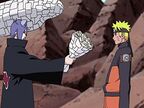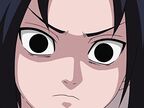In the first part, there is a larger theme, which is probably what is the meaning of life?
For Orochimaru, who has seen too much death and pain, the meaning of life lies in the perfection of life. Specifically, ninjutsu is the perfection of knowledge, and for this purpose life is too short, and the essence and meaning of life inevitably conflict. In order to resolve this conflict, in order to achieve eternity of life and in the process of achieving this goal, Orochimaru has all but abandoned morality.
For Uchiha Itachi, who has also seen too much death and suffering, the meaning of life also lies in the perfection of life. But Uchiha Itachi did not abandon morality while ninjutsu is perfection of knowledge, and put moral perfection above knowledge perfection.
Two people who experience the same thing in some respects, after having the same insight into the sorrow and pain of life, develop diametrically opposite thoughts and behaviors. One completely abandoned morality and completely lost respect for other people's lives; the other placed the collective above the individual, and even sacrificed all happiness for it. What is the reason?
The reason may be that two people have different experiences and understandings of love and hate. For the former, the love he experiences is too little, the general teaching and care of a teacher, and the general friendship and conversation of a friend are not enough. Fill the void in one's heart. For the latter, the deep love of his parents has left an indelible memory in his heart, as well as the care of the elderly, so even after witnessing too many deaths, he still did not give up his respect for life , the pursuit of morality.
Can't love people because they are not loved, hate others because they are hated, the chain of hatred has developed into one of the themes of the second part of the work.
In the second, the main themes are hatred, war, faith, hope, and the pain and despair of life.
Regarding hatred and war, it is mainly about the struggle between people and their own hearts and between people. The cruelty of war and the chain of hatred have made people suffer, and Jiraiya wants to solve this problem but is powerless. But Nagato gave his own answer, but he gave up again. The most important thing here is not the general answer given by Nagato, but the question of faith and hope. Hope confuses people to take action. , and beliefs ensure that people's actions bear fruit.
Between knowledge, belief, and action, belief is in the middle. It can be said that it is only with belief that knowledge has meaning, and theory has the role of guiding practice. When belief reaches a certain level, this theory will be transformed into a a material force. This is true for both the Kuomintang and the Communist Party. Hope entices people to take action, and faith guarantees results.
This belief is based on will and courage, and it is difficult for those who lack both to achieve. In turbulent times, such as those in the late Qing and early Republic, prestige clearly takes precedence over power and wealth. Courage is the foundation of prestige, and a person without courage is almost difficult to be recognized. As Mao Zedong said in his youth: "Wisdom, benevolence, and body, without courage are useless."
Nagato believes in hope, and is a Communist Party-style Radical figures, in order to end suffering must dare to endure greater suffering. Unlike Nagato, Obito and Uchiha Madara do not believe in the so-called hope. In their eyes, the essence of life is long-term pain, triviality, emptiness and boredom, and life is nothing. They have experienced the pain of life and despair of this world. In the world of animation, such people can choose to fall into sleep and psychedelics to escape. In real life, because they cannot escape, most people choose suicide. Some people also choose revenge, madly and blindly revenge on those around them, or at least indifference, allowing hatred to occupy their hearts.
Setting these themes is undoubtedly related to the commercial needs of the work itself, as well as to the author's own life experience and ambitions. But after all, these themes are too big and too difficult to deal with, and if a creator is to try to express these themes, it is absolutely impossible to do it without thoughtful consideration. When I saw this animation in high school, I was fascinated by these themes, and I was very curious about the author throwing such a big theme on the audience, so how does it end in the end? Because inevitably there will always be expectations of answers to questions, and such high expectations will inevitably lead to disappointment and dissatisfaction.
The author tries to give some answers in the work, but if we ask that an animation can give the exact answers to these questions, then this requirement is really too high. In fact, we can only get some general answers here, but although we can't get the answers from the works, it can at least help us to think deeply about it.
Love and hope, this may be the secret of people's salvation, because people have this need, and naturally there are various people who try to provide people with hope for various purposes. The problem, however, is that too many people have only caught a glimpse of hope and start writing books, claiming that they have found hope, and selling the whole of hope.
So is there hope?
Naturally I am not sure, perhaps as Lu Xun agrees with the point of view: "Despair is false, it is the same as hope." As for my own superficial opinion, I can only say in general that if hope really exists, we It can only be found in religion and philosophy.
View more about Naruto: Shippûden reviews










